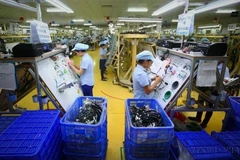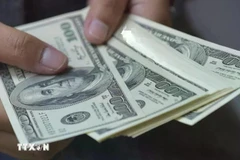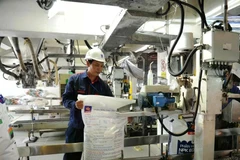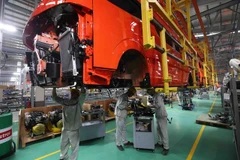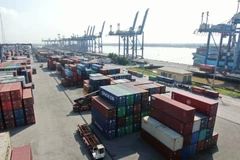"The majority of the domesticcompanies have to deal with the market issue," said Pham Khanh PhongLan, Deputy Director of the Ho Chi Minh City Department of Health,adding that most local factories currently operate at only half theircapacity due to this hindrance.
"Locally manufactured drugs seemany trade barriers when they are exported," said Huynh Thi Lan,Director of the Mekophar Chemical Pharmaceutical Joint Stock Company inHCM City.
To sell drugs abroad, domestic firms have to inviteforeign partners to Vietnam to check the quality of the productionfacilities and materials, and pay the inspection costs.
"Theregistration charges for medicines that are distributed are also muchmore expensive in foreign countries than in Vietnam," she said.
Meanwhile, foreign medicines can be imported quite easily, according to Phong Lan.
Extremelylow local registration costs have let all kinds of drugs, of anyquality, penetrate the domestic market. "If this situation continues topersist, domestic firms will not be able to compete," Phong Lan said.
Even Sanofi, a French joint venture producing drugs in Vietnam, reportedly considers expansion of markets a major concern.
"Seventy-fivepercent of our equity is held by foreign partners, and we are investingin up-to-date production chains. Still we are worried about how to sellour products better," a representative of Sanofi told Tin tuc oncondition of anonymity.
Industry insiders said that the biggestdisadvantage causing domestic companies to be uncompetitive is that theyhave to import production materials at high prices. Many local firmsmanage to survive by seeking contracts to sell drugs in hospitals.
This has resulted in stiff competition among domestic enterprises in the home market.
HCMCity has 25 medicine factories and most of them produce general drugssuch as antibiotics and analgesics, while few focus on making specificremedies for cancer or heart diseases.
Nguyen Tan Binh, Directorof the HCM City Department of Health, suggested that domestic firmsshould link up to produce more high-value products, rather than workingseparately on similar products.
Binh noted that the city has given a priority to local firms that sell drugs in local hospitals in recent years.
"But enterprises need to have long-term measures to help themselves for sustained development," he said.-VNA











